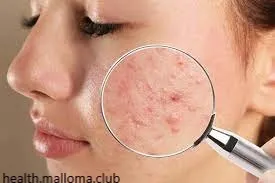Acne is a common skin condition that can be difficult to treat. If you've been struggling with acne, you may have heard of Accutane. Accutane is a medication that can be used to treat severe acne. In this blog post, we'll discuss what Accutane is, how it works, who should take it, and what the side effects are. We'll also give some tips on how to get the most out of your treatment if you decide to try Accutane.
What Is Accutane?
Accutane is a
medication that is used to treat acne. It works by reducing the amount of oil
that is produced by the skin. This helps to keep the pores clear and prevents
them from becoming blocked.
Who Should Take Accutane?
Accutane is
typically prescribed for people who have severe acne that has not responded to
other treatments. It is also sometimes used for moderate acne.
What Are the Side Effects of Accutane?
The most common
side effects of Accutane are dry skin, chapped lips, and dry eyes. Other
potential side effects include headaches, joint pain, and muscle aches. Some
people may also experience depression or anxiety while taking Accutane.
How to Get Rid of Acne with Accutane?
One of the most
important things to do when taking Accutane is to follow the instructions of
your dermatologist. They will know how your body will react to the medication
and can adjust your dosage accordingly. It is also important to keep them
updated on any changes in your condition, such as new breakouts or side
effects.
Be Patient.
Accutane can take
up to several months to start working, so it is important to be patient when
taking it. You may not see results for a few weeks, but stick with it and you
should start seeing improvement eventually. Do not give up if you don't see
results immediately, as this takes time and everyone's skin reacts differently.
Use a Mild Facial Cleanser.
While taking
Accutane, it is best to use a mild facial cleanser twice daily (in the morning
and evening) to wash your face gently without irritating your skin further. Be
sure to avoid cleansers with harsh ingredients or exfoliants, as these can
cause more irritation. A gentle, non-drying cleanser should suffice while you
are on Accutane treatment.
Apply a Non-comedogenic Moisturizer
It is also
important to moisturize your skin while taking Accutane, as this medication can
cause dryness and flakiness. Be sure to use a non-comedogenic (non-pore
clogging) moisturizer that won't further irritate your skin barrier or cause
breakouts. Apply this after cleansing in the morning and evening for best
results.
Subsection 2.5 Use
a Sunscreen Sun exposure can cause serious side effects while taking Accutane,
so it is essential that you use sunscreen every day during treatment (and even
after treatment has ended). Choose a sunscreen with at least SPF 30 that
provides both UVA and UVB protection, and apply it liberally before going
outside for extended periods of time.
Conclusion
If you're
struggling with acne, Accutane may be the answer you're looking for. This
medication can be incredibly effective in treating even the most severe cases
of acne, but it's important to follow your dermatologist's instructions and be
patient. In addition to taking Accutane, use a mild facial cleanser, apply a
non-comedogenic moisturizer, and wear sunscreen every day to help keep your
skin healthy and prevent new breakouts.


